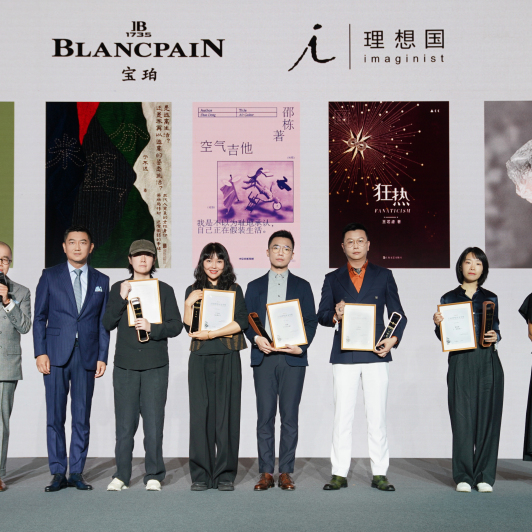The 7th Blancpain-Imaginist Literary Prize concluded yesterday. This local award, aimed at encouraging young Chinese writers under the age of 45, has garnered widespread recognition and praise, both in the luxury goods industry and the literary world.
After six years of development, the number of submissions for this year’s Blancpain Imaginist Literary Prize reached 115, the highest in its history and the first time it has exceeded 100 entries. Young writer Wei Sixiao won the top prize with his work “Tuguang Cunmu”.
Contrary to the common perception that brands often prioritize lively and grand marketing activities, Luxe.CO has witnessed a different experience at each Blancpain Imaginist Literary Prize event. Listening to young writers quietly discuss writing and life has become one of the most luxurious experiences of the year.
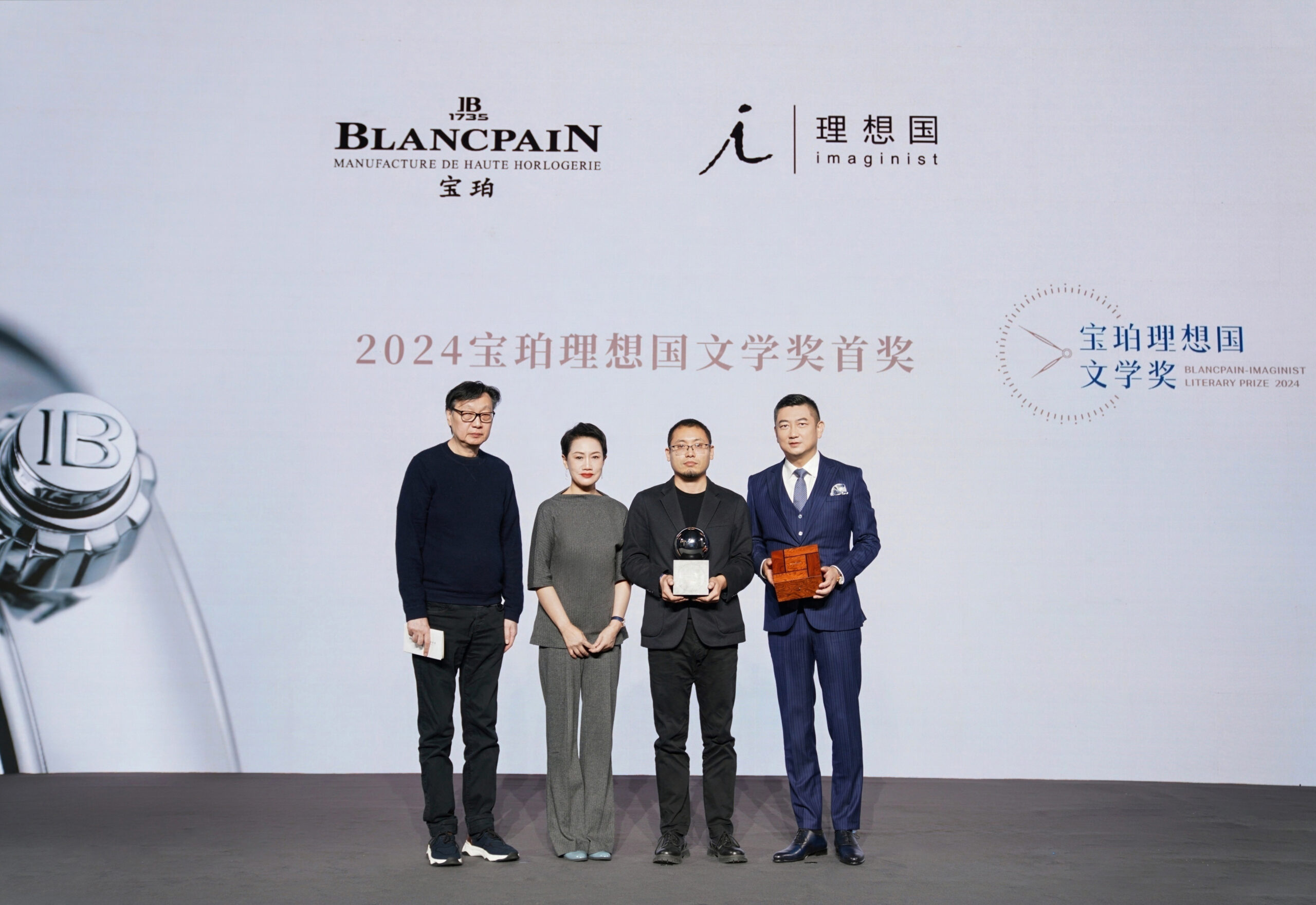
Jack Liao, Member of the Swatch Group China Management Committee and Vice President of Blancpain China, Liu Ruilin, Founder of Imaginist and Seeing Imaginist, along with Judge Representative Mr. Xu Zidong, presented the top prize to Wei Sixiao.
In today’s society, writing is undoubtedly challenging, but there are still those who persist out of love.
At the event, many others shared this passion and commitment:
Liang Wendao, the founder of the Blancpain Imaginist Literary Prize, emphasized the importance of rotating the judging panel each year. He highlighted the rigorous six-month process of reading and discussing all the entries, culminating in the final deliberation and announcement on the same day.
Liu Ruilin, Founder of Imaginist, spoke about the long-standing challenges in the publishing industry. Blancpain Cultural Ambassador Chen Xiaoqing also discussed the persistence needed to produce in-depth, high-quality content and the difficulties faced by the media industry.
Wang Zhanhei, a post-90s young novelist and the first-ever recipient of the Blancpain Imaginist Literary Prize, remarked, “I’m glad that this prize still exists, and I’m glad that its co-founders, Blancpain and Imaginist Publishing, are still with us.”
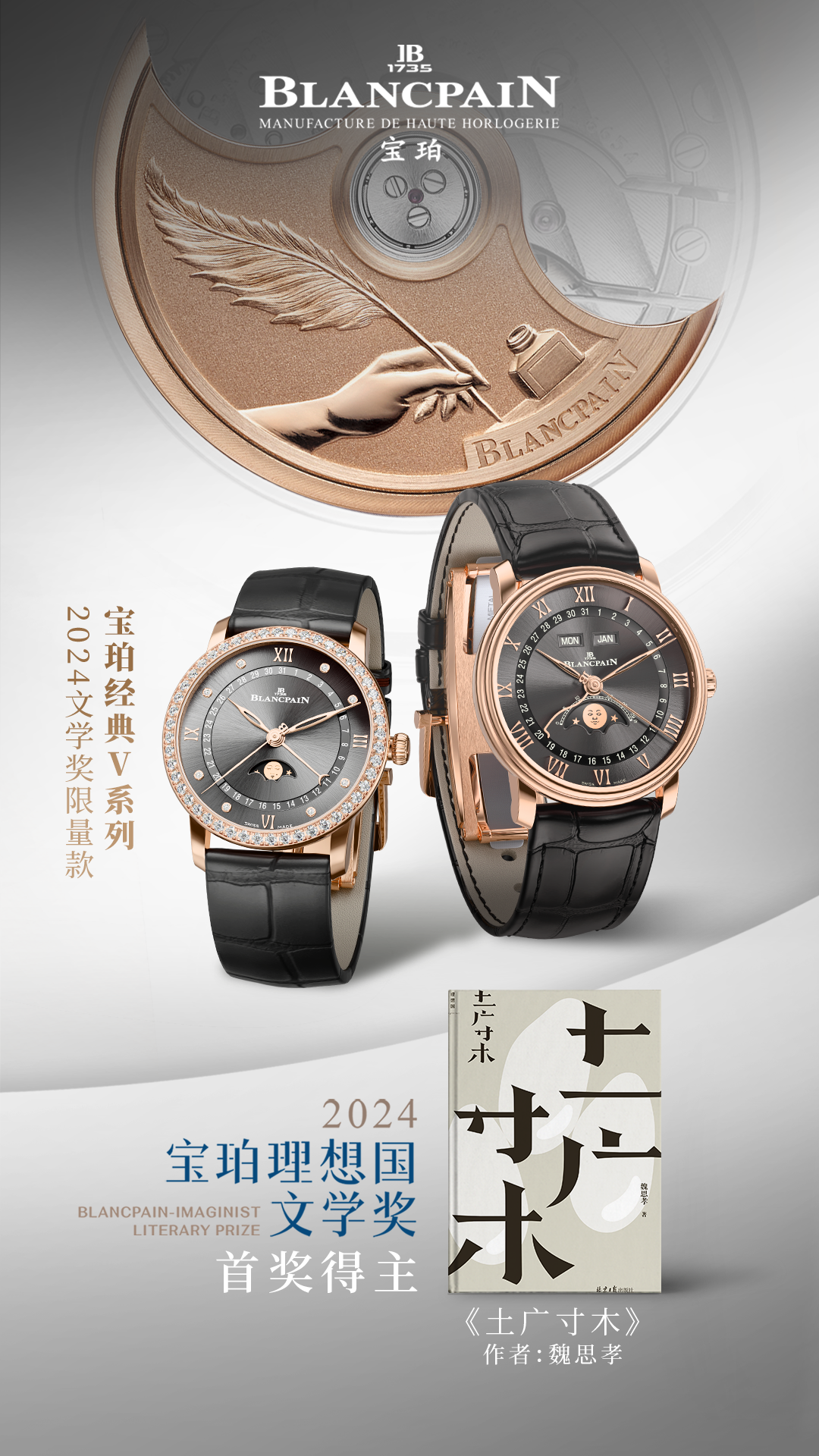
Xu Zidong, on behalf of the judging panel, gave a speech about Wei Sixiao’s winning work “Tuguang Cunmu”:
“With a focus on the village, rather than a single character or event, the work inherits the tradition of “Sheng Si Chang” through a meticulous, realist style. Spatially, it deepens the mainstream of Chinese rural literature, while temporally it updates the narrative of farmers from the eras of “Huo Zhe” and “Pingfan Shijie”, portraying modern rural life: corn harvesting by tractors, farmers on social media, township elections, and rural nursing homes. Amidst rural changes, it reflects on what remains unchanged—such as the kinship and clan-based interpersonal networks described in Fei Xiaotong’s “Xiangtu Zhongguo”.”
Upon winning, Wei Sixiao expressed his mixed emotions, saying:
“In my mind, there are three important literary awards: the Nobel Prize, the Booker Prize, and the Blancpain Imaginist Literary Prize. I was quite anxious about whether I would win this prize. I even dreamt about it: before the longlist was announced, I dreamed of not making it; before the shortlist, I dreamed of not being on it; but I never dreamed of winning. I think the significance of a literary award is not just measured by its existence, but by imagining what it would be like if it didn’t exist. For us young writers, the Blancpain-Imaginist Literary Prize has given us a stage.”
(Note: The Booker Prize is one of the most prestigious awards for contemporary English fiction. Established in 1969, it is awarded annually. Han Kang, the South Korean writer who recently won the Nobel Prize in Literature, was awarded the International Booker Prize in 2016.)
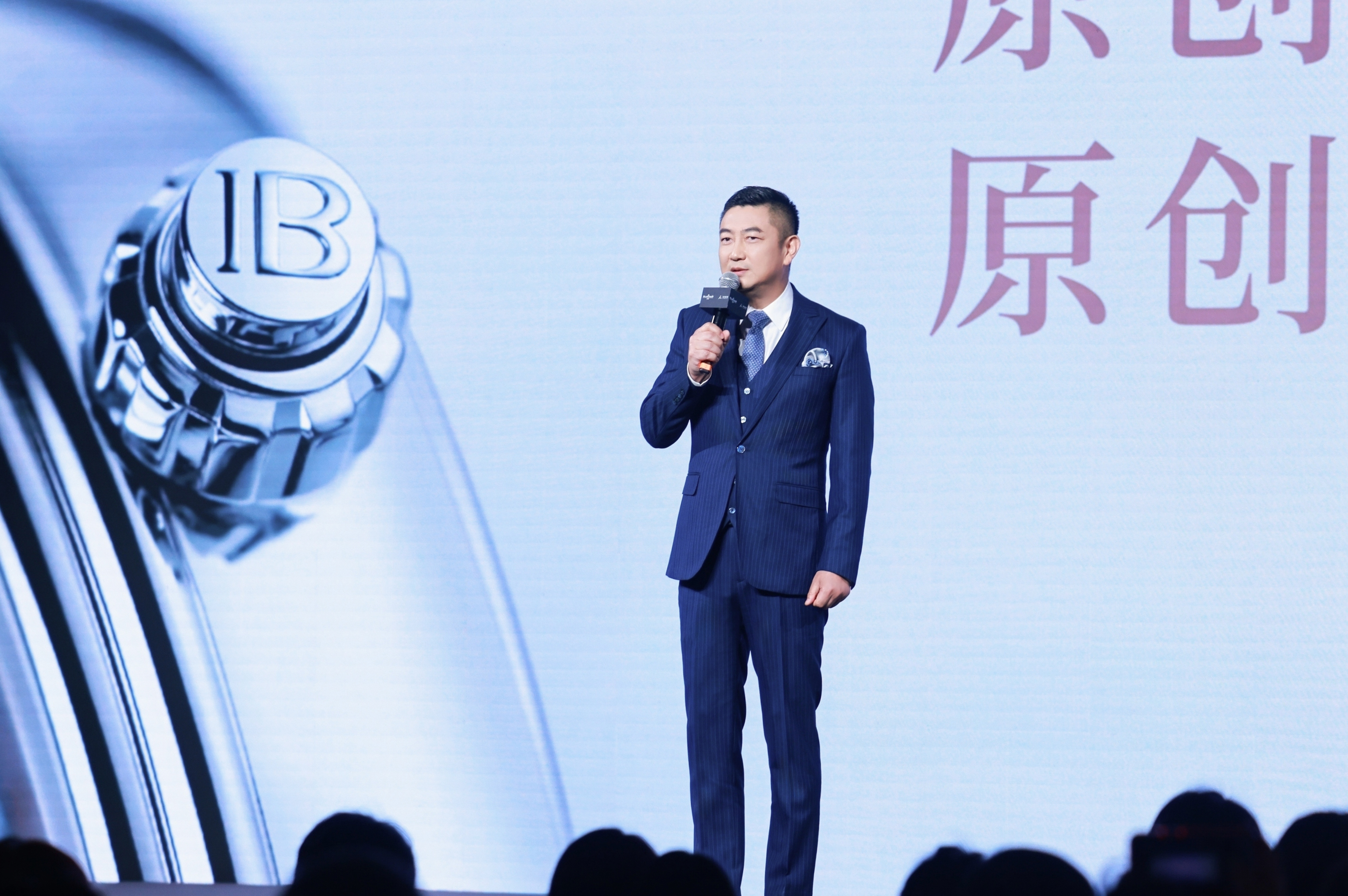
Jack Liao, Member of the Swatch Group China Management Committee and Vice President of Blancpain China
At the event, Liao mentioned several young people who had previously juggled part-time writing with other jobs but decided to dedicate themselves fully to literature after winning the prize.
When comparing this prize to the Booker Prize, Liao remarked:
“As the first prize jointly initiated by a commercial entity and a publishing house in China, the Blancpain-Imaginist Literary Prize has many distinctions, especially in its mission and vision. Our goal is to provide a platform and a spotlight for these young writers, allowing more people to see them. In this long, seemingly endless marathon of writing, we aim to be there to offer them a bottle of water and encourage them as they run alone.”
The literary prize committee awarded Wei Sixiao the top prize, which includes 300,000 RMB and a Blancpain Classic V-Series watch.
The other shortlisted authors—Datouma, Gu Xiang, Tong Mo, Wei Sixiao, and Zheng Xiaolv (listed alphabetically by surname)—were all awarded the Blancpain Young Friend Award and certificates of recognition by Jack Liao and Liu Ruilin. Aside from the top prize, the four remaining shortlisted authors each received a 20,000 RMB honorarium from Blancpain to encourage continued creative work.
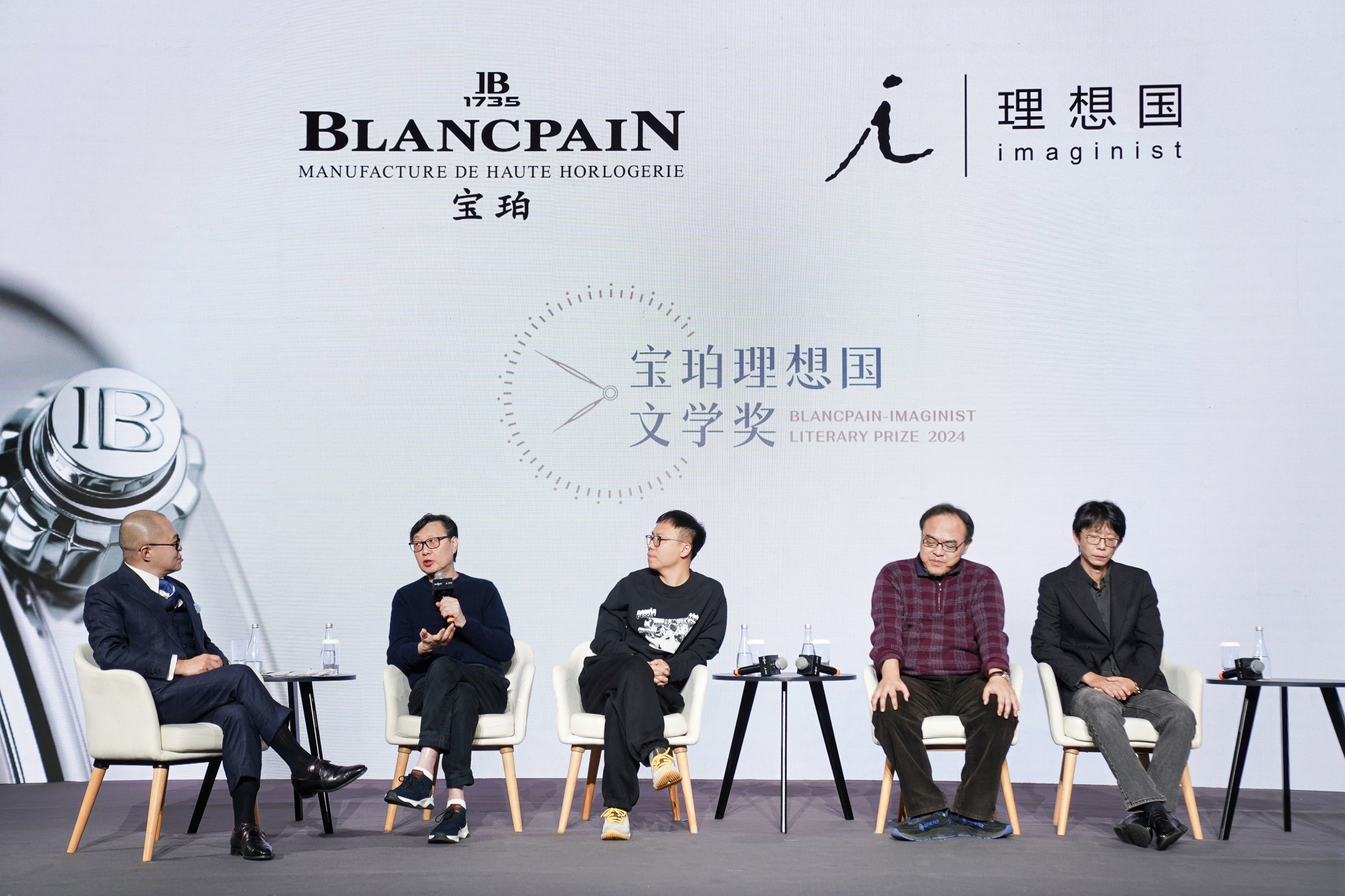
Discussion of the 7th Blancpain Imaginist Literary Prize by the Judging Panel
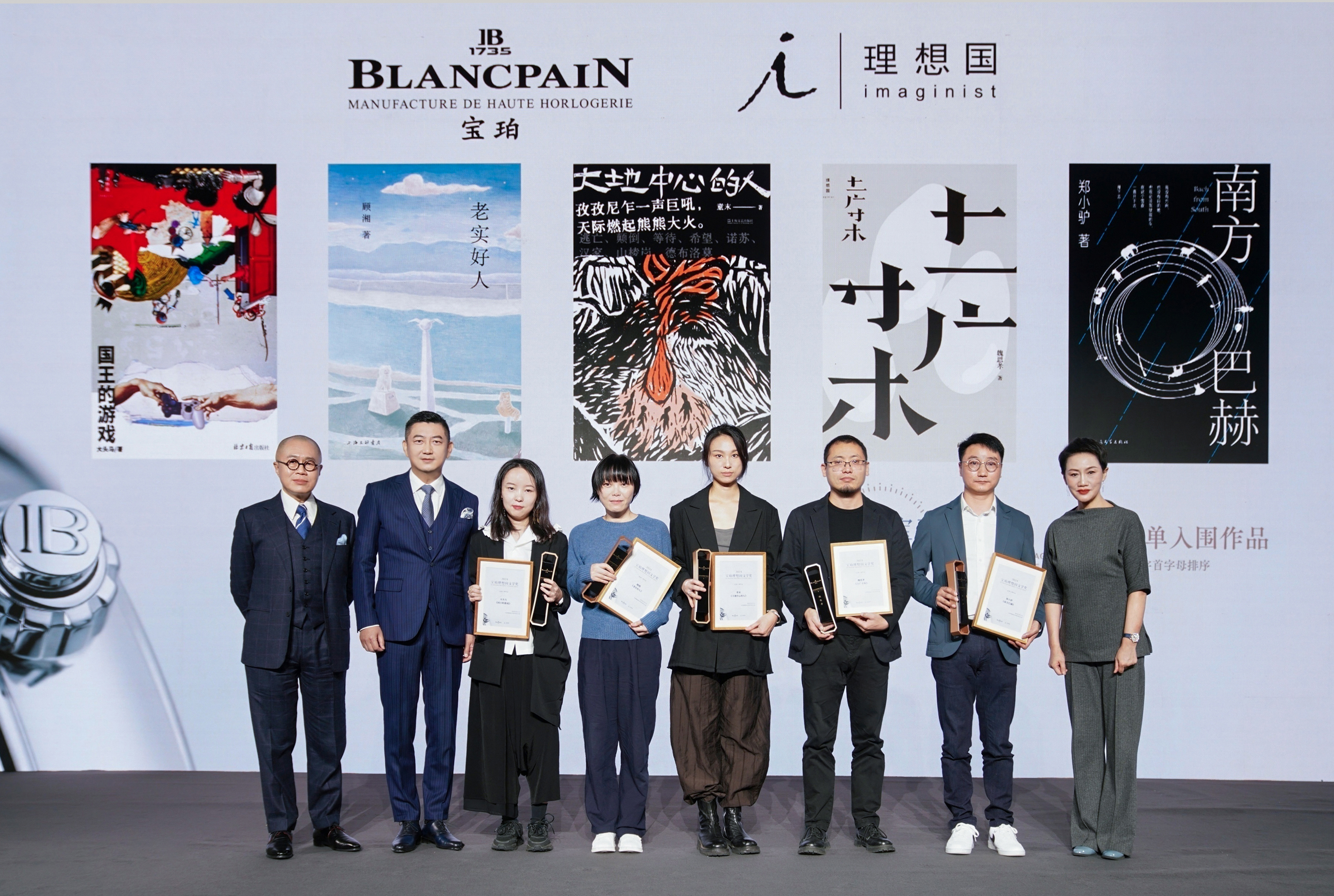
Jack Liao and Liu Ruilin presenting awards to the shortlisted authors
During his appearance at the Luxe.CO Fashion Innovation and Investment Forum in April this year, Liao said: “The more top-tier the brand, the more it adheres to long-termism. Brand culture must be visible and tangible.”
He further explained: “From a long-term perspective, brand culture is what differentiates a brand and helps it avoid pitfalls—what to do and not do when business is good, and where the bottom line lies when business is tough. While literature doesn’t bring immediate commercial value to a brand, it fosters cultural recognition.”
The theme of this year’s 7th Blancpain-Imaginist Literary Prize was “Where lies the Originality of Chinese Literature?”
Liao noted, “Originality is an essential standard to ensure the seriousness of literary works, but it’s not the only criterion for excellence.”
“A great work should not only be original and technically well-written but also carry the author’s unique emotions, personality, perspective, and vision, thereby forming a complete personal style. The same applies to a great timepiece—it must be distinctive, differentiated, and instantly recognizable. Just by seeing the skeletonized leaf-shaped hands, waist-shaped 3D indices, and the signature double-circle bezel, you know it’s a Blancpain.”
On the day of the award ceremony, Blancpain also unveiled its 2024 limited edition literary prize timepiece in Beijing. The watch is based on Blancpain’s classic V-Series complete calendar moon phase 6654 and Moon Beauty date indicator 6126, both reimagined in a poetic champagne-gray color. The gold oscillating weight is engraved with a beautiful design of “a hand holding a feathered pen, dipped in ink,” symbolizing the hope that creators will be inspired and produce masterpieces, paying tribute to the spirit of literature.
| Image Credit: Official Press Release
| Editor: LeZhi

